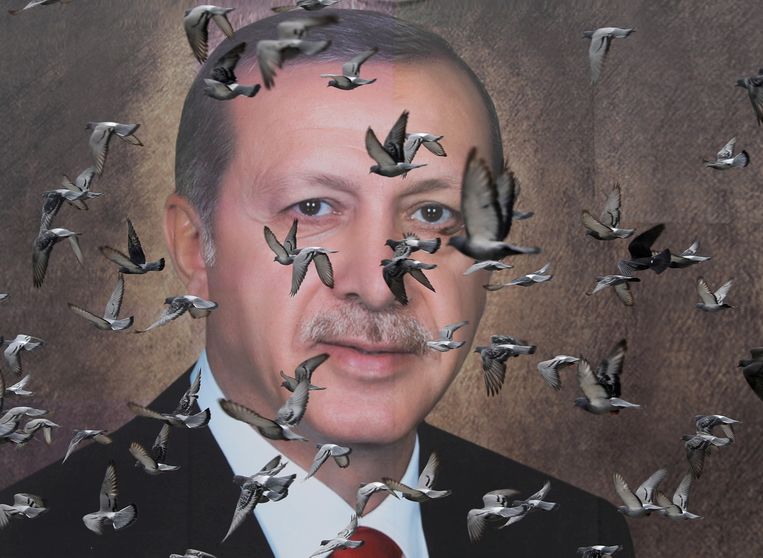It was hanging in the air all weekend: Will Turkey actually deport ten Western ambassadors, including those from the Netherlands and the United States? After all, this is what President Recep Tayyip Erdogan announced, Saturday, in a speech to an enthusiastic crowd of his supporters in the city of Eskisehir.
Erdogan said he had ordered his foreign minister to declare the ambassadors persona non grata, which is the official starting point for the expulsion. However, the ambassadors did not hear anything on Sunday evening. It appears that the matter will be discussed first at the cabinet meeting in Ankara on Monday.
If it were decided to impose Erdogan’s words, it would be an unprecedented decline in the relationship between NATO member Turkey and the Western members of the alliance. Then Turkey responds strongly to the ambassadors’ call to the Turkish authorities, last Monday, for the release of businessman and philanthropist Osman Kavala.
The next day, ambassadors in Ankara had already been summoned, and Erdogan on Thursday hinted at the deportation. “We cannot afford to allow this group into our country any longer,” he told reporters. Do you think you can give a lecture on Turkey? Who do you think you are?’
It often happens with Erdogan that such rhetoric is not followed by action, but since Saturday’s speech he seems to want to break the madness. However, in doing so, it risks conflict with the countries it desperately needs on various fronts. The statement was also signed by ambassadors from France, Germany, Canada, New Zealand and Scandinavia.
Economie
What drives Erdogan’s calculations? The Turkish opposition immediately linked it to the poor state of the economy. The value of the Turkish lira has been steadily declining for years and fell freely last week after the central bank cut interest rates despite rising inflation. The lira has never been so weak before.
Partly because of this, the ruling Justice and Development Party (AKP) is doing poorly in the opinion polls. As it stands, Erdogan will not win the elections in 2023. Conflict with the West can distract from all this, or from thought. “We know this movie now,” said Yavuz Ağiralioglu of the opposition IYI party. “Better tackle the real problems of this country, the economic crisis.”
The man at the center of this game, 64-year-old Osman Kavala, is a prominent figure in Turkish civil society. Anadolu heads Kültür, an organization for cultural and social projects. Anadolu Kültür works a lot with artists, minorities and underprivileged children.
Kavala has been detained for four years. He was charged with attempting to overthrow the government during the 2013 Gezi protests and participating in the failed coup in Turkey in 2016.
The Kavala case has become the most important criterion for Europe in the debate with Ankara about the deterioration of democracy and the rule of law. The European Court of Human Rights ruled in 2019 that there was absolutely no evidence against Kavala. The Council of Europe has initiated criminal proceedings against Turkey. This may lead to the suspension of Turkey’s membership.
collision course
Parties in the House of Representatives responded very decisively to Erdogan’s announcement on Saturday. Katy Perry (PvdA) says she’s “on a collision course.” According to the VVD’s foreign affairs spokesperson, Ruben Brekelmans, Erdogan is once again showing his true face with this move. Dirk Jan Ebenk (JA21) tweeted that the president “has lost his mind and appears to be in control of old age.”
Meanwhile, the climate between Turkey and Europe threatens to cool in other ways, too. According to the European Commission, negotiations with Ankara on joining the European Union have “virtually stopped”. The Commission writes this in an unprecedented critical report on relations with Turkey. Never since accession talks began in 2005 has any progress report been so negative.
Brussels is particularly concerned about the erosion of the rule of law in Turkey. Ankara ignored the committee’s recommendations in this regard. The European Commission said the EU’s “grave concerns about the deterioration of democracy, the rule of law, fundamental rights and judicial independence have not been addressed.”







